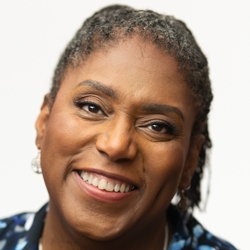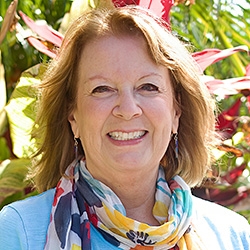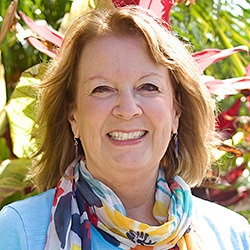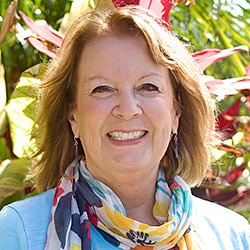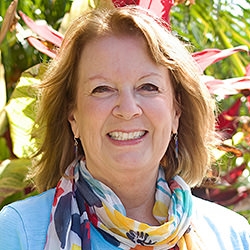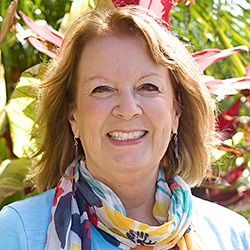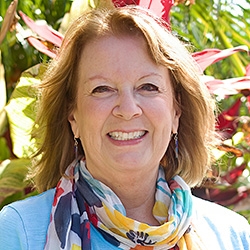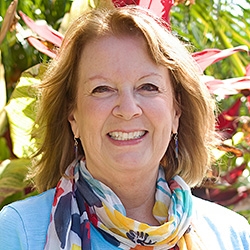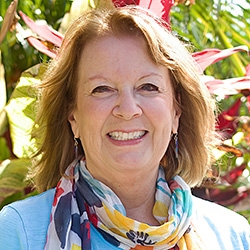
Search Results: war
-
- Learn tips and strategies to ensure ALL voices are heard
- Grow your capacity to name and address power dynamics
- See how prior assumptions and perspectives impact how groups work together
- Explore facilitation components using a caring for all, power-with lens
-
Trainer tip: NVC consciousness recognizes interdependence. In this process each person is autonomous; everyone's needs matter; people have choice and responsibility for their actions; there's abundance, and a valuing of coming together. The dependence / independence paradigm assumes we either need someone else to be whole -- or we don’t need others at all. Commit to living autonomously. Notice where you struggle with this.
-
Trainer Tip: Notice if something within your agency will bring you the serenity you want. If not, then notice the needs you are trying to meet by wanting to take that action. Then then choose another action that's more likely to have the desired effect.
-
Trainer Tip: Love can be both a feeling and a need in Nonviolent Communication. It can be seen as a need if we do something to meet our need for love. We can also experience love as a feeling, just as warmth, affection, and excitement are feelings. Often, but not always, we can feel love and meet our need for love at the same time.
-
It is the first day of 2024 and I am filled with gratitude and awe. Yesterday, I celebrated my 9th year of hosting my annual New Year’s Peace Meditation. We had over 800 people register from many, many different countries and the meditation was interpreted into 4 different languages. It was incredibly moving, connecting, and hopeful for me!
-
I’ve been part of a fitness group here in California for the past 1.5 years. It’s called Boot Camp, and I have no idea why! Anyway, most people in the class are 25-30 years younger than I am and have been part of this group for several years. I don’t lift weights as heavy as theirs and I can’t always keep up with them, but I had felt confident that I was holding my own (except when jogging, which is the one place where I consistently lag far behind them). I found a way to be okay with this, to enjoy working out with them, without thinking I should be as strong or skilled as they are.
-
Whether its pandemics, climate change, damage to the environment or other massive challenges that humanity faces, what are we to do if we can't agree on even the most basic information and knowledge? From empathic understanding we can focus on shared, universal human needs (where there is no conflict or disagreement) underlying our perceptions, and feelings. Then we can see if there are ways we can agree on to meet those needs.
-
- Discover how mediation is a fundamental social skill that everyone can learn
- Gain the skills to stay centered when a conflict becomes heated
- Learn how to lead a dialogue toward sustainable agreements
- Help facilitate connection and creativity to discover and meet everyone’s needs
-
Dear friends, It’s quickly moving into Fall here in the northern part of the world. The leaves are turning, there’s a crispness to the air especially in the morning and evenings, and there’s a certain earthy scent that emanates from the park across the street from our house.
-
CNVC Certified Trainer, Yoram Mosenzon has a vision… he sees mediation as a basic life skill that could be taught in schools starting at the age of three. He dreams of a world where all human beings have mediation skills to support understanding, cooperation, and connection when conflicts arise.
-
Ask the Trainer: "I understand that I'm not responsible for someone else's feelings, but my girlfriend doesn't. Do you have ideas for how I could get her to understand this concept?"
-
Ask the Trainer: "In trainings I say our jackals are thoughts and now I've come to wonder if all thoughts are jackals...?"
-
When it comes to how you're achieving your goals, notice what you value. Is achievement coming at others' expense? Where is your sense of worth and validation derived from? Do other people in some way set the bar that you strive to surpass? Without comparing to other people, what does success mean to you? Read on for a related story.
-
Using his own life experience, Eric explores why we need support from others, what support might look like, and what blocks us from asking for support for our relationships.
-
How can we live up to our true potential, a life filled with relationships and experiences that truly meet our needs? In this article, Mary offers us a way to bring about inner transformation that can lead to seeing ourselves, others and life differently -- for greater agency, empowerment and choice.
-
Do your emotions ever feel overwhelming or out of control? You’re not alone. In this heartfelt video, Mary Mackenzie shares a simple yet transformative technique inspired by Nonviolent Communication (NVC) that helped her move past the fear of feeling too much.
-
CNVC Certified Trainer Jeff Brown explains that it's truly easy to begin bringing NVC to your workplace. Start internally and avoid using NVC as a structured or "right" way to speak.
-
Reacting is deciding what to do based on what someone else does. Responding is deciding what to do based on your own needs and values. When someone isn't responding the way you want, and you want to respond in a way that embodies your values, with warmth and patience, examine your reactions. Ask yourself how you can access compassion and action that contributes to the well-being of all.
-
Let this inspiring video guide you through exercises as if you are actually present at the workshop with Mary Mackenzie! The video opens with Mary leading you through an exercise that generates a physical experience of the NVC consciousness.
-
Mary Mackenzie, an internationally renowned CNVC Certified Trainer, demonstrates two exercises that will help you learn fast “on the run” self-empathy techniques. The video includes practical techniques to guide you toward noticing your physical sensations, feelings and needs.

